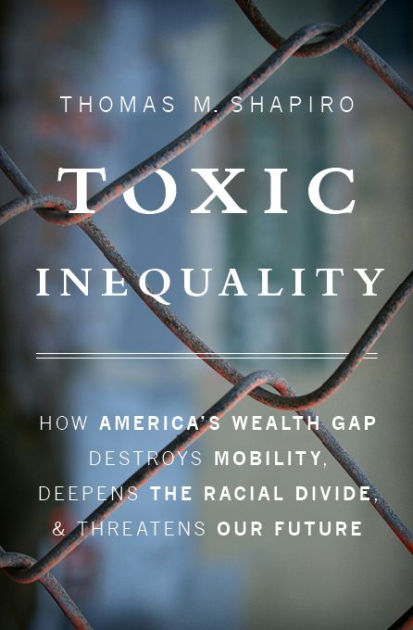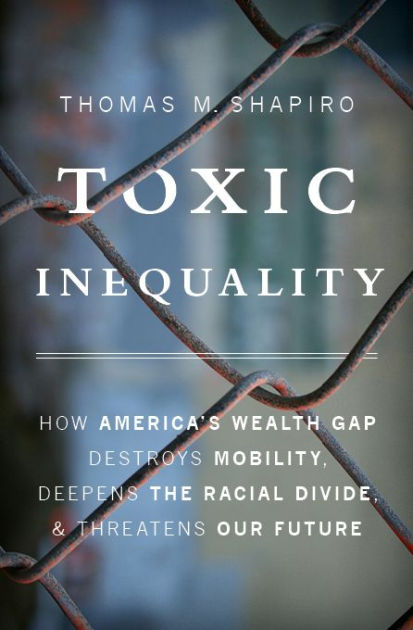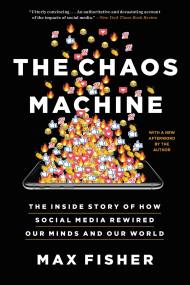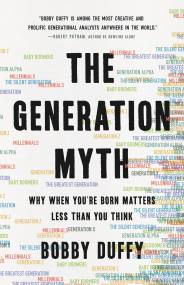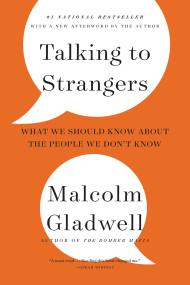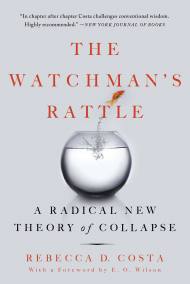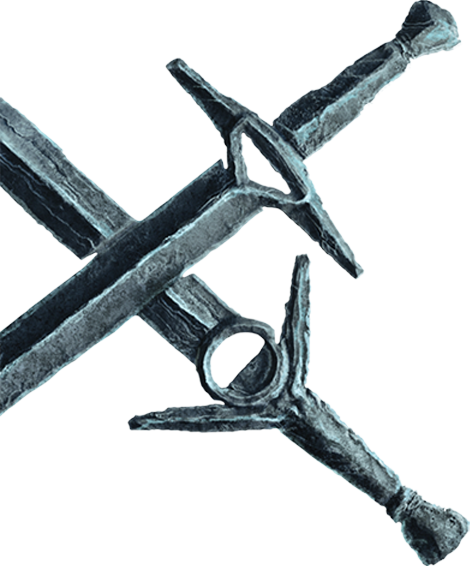
Toxic Inequality
How America's Wealth Gap Destroys Mobility, Deepens the Racial Divide, and Threatens Our Future
Contributors
Formats and Prices
Price
$30.00Price
$38.00 CADFormat
Format:
- Hardcover $30.00 $38.00 CAD
- ebook $14.99 $19.99 CAD
Also available from:
Since the Great Recession, most Americans’ standard of living has stagnated or declined. Economic inequality is at historic highs. But inequality’s impact differs by race; African Americans’ net wealth is just a tenth that of white Americans, and over recent decades, white families have accumulated wealth at three times the rate of black families. In our increasingly diverse nation, sociologist Thomas M. Shapiro argues, wealth disparities must be understood in tandem with racial inequities — a dangerous combination he terms “toxic inequality.”
In Toxic Inequality, Shapiro reveals how these forces combine to trap families in place. Following nearly two hundred families of different races and income levels over a period of twelve years, Shapiro’s research vividly documents the recession’s toll on parents and children, the ways families use assets to manage crises and create opportunities, and the real reasons some families build wealth while others struggle in poverty. The structure of our neighborhoods, workplaces, and tax code-much more than individual choices-push some forward and hold others back. A lack of assets, far more common in families of color, can often ruin parents’ careful plans for themselves and their children.
Toxic inequality may seem inexorable, but it is not inevitable. America’s growing wealth gap and its yawning racial divide have been forged by history and preserved by policy, and only bold, race-conscious reforms can move us toward a more just society.
“Everyone concerned about the toxic effects of inequality must read this book.” — Robert B. Reich
“This is one of the most thought-provoking books I have read on economic inequality in the US.” — William Julius Wilson
-
"[In Toxic Inequality] Shapiro, a public-policy specialist, explores the fault lines of race in the landscape of inequality. The book draws on two sets of interviews with 137 US families of different ethnicities and levels of income over a decade, and argues that class must not eclipse race as an explanation of wealth inequality.... Shapiro argues that virtues such as thrift or dedication are not enough to overcome these disadvantages--especially when policy (that is, health-care coverage and housing regulations) makes it harder to build wealth."Nature
-
"Shapiro makes a persuasive and well-written case that families are not poor because they lack personal responsibility or are lazy and prefer welfare to working, but rather because of the lottery of birth. Inherited wealth, education, employment conditions, tax laws and the circumstances of one's birth distinguish those who get ahead from those who fall behind."John K. Collins, Winnipeg Free Press
-
"A strong case that deserves a wider readership than just policy wonks."Kirkus Reviews
-
"A thorough read on inequality when considering race, wealth, and wealth gaps.... Although heavy on sociological research, Shapiro's work is easy to follow and valuable for [those] interested in expanding their knowledge on factors that affect economic mobility among marginalized groups."Library Journal
-
"In this lucid and compelling book, Thomas M. Shapiro convincingly argues why we can't understand wealth and income inequality in America without also understanding racial inequality, and that any potential solution to the former must also remedy the nation's widening racial divide. He shows how wealth and race compound historic injustices through their combined effects on housing, schools and colleges, employment, and politics. Everyone concerned about the toxic effects of inequality must read this book."Robert B. Reich, author of Saving Capitalism: For the Many, Not the Few
-
"In this indispensable book, Thomas M. Shapiro connects the stories of individual American families to a powerful and readable analysis of data and policy, revealing the truth about escalating racial inequality in America: it is the result of institutional forces, not individual effort."Heather C. McGhee, President, Demos
-
"Thomas M. Shapiro brilliantly analyzes the most important economic challenge of our time. With its razor-sharp insights and poignant personal stories, Toxic Inequality is a compelling, crucially important, and ultimately hopeful book."Bob Herbert, Distinguished Senior Fellow at Demos and former Op-Ed columnist for the New York Times
-
"This is one of the most thought-provoking books I have read on economic inequality in the US. Thomas M. Shapiro's poignant stories of families coping with financial stress and insecurity, based on interviews over several years, are buttressed by his persuasive account of how economic, political, and social forces enhance the relationship between wealth disparities and racial inequities. Shapiro's penetrating analysis and bold policy prescriptions make Toxic Inequality a must-read."William Julius Wilson, Lewis P. and Linda L. Geyser University Professor, Harvard University
-
"In Toxic Inequality, Thomas M. Shapiro shows that inequality harms everyone--that it squanders talents, misallocates resources, and suppresses initiative. Deftly blending facts and figures with moving personal stories, this book reveals how severe inequality is, why it matters, and what we can do about it."George Lipsitz, author of The Possessive Investment in Whiteness
- On Sale
- Mar 14, 2017
- Page Count
- 288 pages
- Publisher
- Basic Books
- ISBN-13
- 9780465046935
Newsletter Signup
By clicking ‘Sign Up,’ I acknowledge that I have read and agree to Hachette Book Group’s Privacy Policy and Terms of Use
